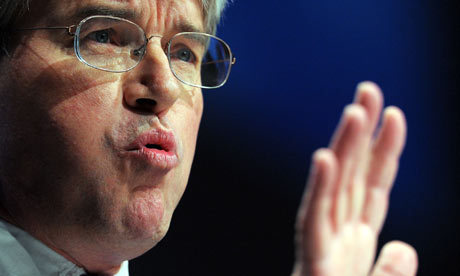 On Thursday, Andrew Mitchell rolled out the government’s first overseas aid
initiative – a transparency watchdog – and took to the airwaves to explain the idea. It makes particular sense in a downturn to ensure that taxpayer’s money is well spent but also
to give voters the feeling that independent assessments are carried out to guarantee value for their money.
On Thursday, Andrew Mitchell rolled out the government’s first overseas aid
initiative – a transparency watchdog – and took to the airwaves to explain the idea. It makes particular sense in a downturn to ensure that taxpayer’s money is well spent but also
to give voters the feeling that independent assessments are carried out to guarantee value for their money.
On Newsnight, the International Development Secretary ran into a criticism, often voiced by the aid community – that the Conservatives are too willing to “militarise” aid or to
“politicise” it. He dealt with the criticism robustly – but I want to have a go too. Because while these are snappy sound bites they miss a number of fundamental points.
Development assistance, unlike humanitarian relief, is an inherently political business. Long-term growth and poverty-alleviation only takes place when developing countries decide to organise their
affairs – their regulatory systems, their monetary and fiscal arrangements, their police-and-justice institutions and so on — in ways that facilitate growth in the long-term and allow for
the distribution of the proceeds of that growth to the poorest citizens.

Get Britain's best politics newsletters
Register to get The Spectator's insight and opinion straight to your inbox. You can then read two free articles each week.
Already a subscriber? Log in






Comments
Join the debate for just £1 a month
Be part of the conversation with other Spectator readers by getting your first three months for £3.
UNLOCK ACCESS Just £1 a monthAlready a subscriber? Log in